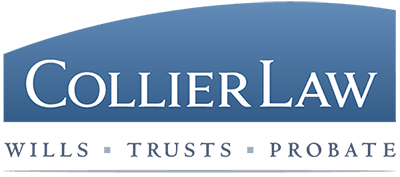You’ve worked hard, you’ve saved, and you’ve invested, but have you planned for the future of your estate? Finding an estate planning attorney, while often overlooked, forms a critical step in securing your financial legacy.
It’s not just about distributing your wealth posthumously but also about managing your assets and healthcare decisions if you’re unable to do so. From drafting a solid will to establishing trusts, appointing powers of attorney, and even planning for potential tax implications, it’s a process that requires careful thought and strategic planning.
Wondering where to start? Don’t worry; we’re about to embark on a journey to uncover the key steps involved in estate planning. So, are you ready to secure your legacy?
Understanding Estate Planning

To fully grasp the concept of estate planning, you must first understand the importance of creating an inventory of both tangible and intangible assets. This step is vital in the estate planning process as it helps you assess what you own and its worth.
Understanding estate planning also involves establishing important directives such as trusts, medical care directives, and power of attorney designations to protect your interests. You’ll need to review beneficiaries and plan for regular reassessments.
It’s crucial to understand state estate tax laws, including federal rates and exemptions. Estate planning involves legal experience and financial planning, so consider consulting with tax advisors, especially if you’re in a tax-heavy state. This step can help streamline the process and minimize tax liabilities.
Inventorying Your Assets
Having understood the basics of estate planning, it’s now essential to inventory your assets. This process encompasses identifying all tangible and intangible assets you own. This crucial step forms the backbone of your financial plan and is a key item on your estate planning checklist.
It involves noting details about your homes, vehicles, investment accounts, stocks, life insurance, and business ownership. Also, don’t forget to list all outstanding liabilities and consider professional appraisals for accurate valuation. Document all assets securely, including account numbers and contact information, and provide a copy to your estate executor.
Caring for Minor Children
If you have minor children, it’s essential to address their future care and financial needs in your estate plan. As part of the estate planning process, you’ll need to name a guardian for your children in case you’re not around. This is a legal document that provides for their care and ensures their financial needs are met.
Consideration should also be given to children from previous marriages and dependents with special needs. It’s important to structure the estate plan in such a way to protect eligibility for government benefits.
Regular reviews and updates to your plan ensure that it continues to meet the changing needs of your loved ones. Your minor children’s future depends on your careful planning today.
Establishing Healthcare Directives
In the midst of estate planning, establishing healthcare directives serves as a crucial step, allowing you to articulate your specific medical wishes and appoint a trusted individual to make health-related decisions on your behalf if you’re unable to communicate. This procedure, also known as advanced health care, is an integral part of ensuring your end-of-life wishes are respected.
Now, let’s look at the core aspects of establishing healthcare directives:
- You’ll need to draft an advance directive, which is a document outlining your healthcare preferences.
- You might consider appointing an attorney for health care, someone who can legally make decisions when you can’t.
- It’s important to discuss these decisions with your loved ones to ensure clarity and reduce potential conflicts.
Appointing Financial Power of Attorney
Appointing a financial power of attorney is a significant step in the estate planning process, as you’re entrusting someone with the authority to manage your financial affairs should you become incapacitated. This person will make financial decisions on your behalf, so it’s crucial to choose someone you trust and who understands your financial goals.
You’ll need to complete the necessary legal documentation to make this appointment official. It’s advisable to seek a legal team to ensure that you’re taking the right steps. Regularly reviewing and updating your power of attorney designation is also key. This way, you can ensure your appointed person remains the best fit for your needs and that your estate plan continues to serve your interests effectively.
Life Insurance Considerations
When it comes to securing your family’s future, understanding the role of life insurance in your estate plan is key. Life insurance policies are a critical part of your personal finance strategy, providing a safety net for your beneficiaries upon your death.
Here are some considerations for incorporating life insurance into your comprehensive estate plan:
- Understanding the financial needs of your family: This includes income replacement and debt coverage.
- Reviewing different types of insurance policies: Term life, whole life, and universal life all have their unique benefits.
- Consulting a financial planner: They can ensure that your life insurance aligns with your overall financial and estate planning goals.
Addressing Estate Taxes
Navigating the maze of estate taxes is crucial for you to grasp the impact of federal estate tax implications, particularly the rates and exemption amounts for substantial estates. This step in the estate planning process is about addressing estate taxes effectively.
An estate attorney can provide detailed guidance on whether your estate qualifies as a taxable estate and how to minimize potential tax liabilities. Remember, some states levy their own estate and inheritance taxes.
Using strategies like a Grantor Retained Annuity Trust may help if your estate exceeds federal limits. Regularly reviewing and updating your plan in response to changing tax laws and personal circumstances is a vital part of this process.
Your diligence now will ensure a smoother transition for your beneficiaries later.
Understand the Value of Professional Help with Collier Law
After meticulously planning for estate taxes, you might find the expertise of a professional law firm, such as Collier Law, invaluable in navigating the complexities of the estate planning process. It’s not just about drafting wills or setting up trusts; understanding the value of professional help can significantly shape the steps involved in your estate planning.
Collier Law can assist with the following:
- Utilizing legal tools to reduce estate taxes, support minors, and smoothen business transitions
- Ensuring your entire estate plan remains relevant and effective through regular reviews and updates
- Addressing unique aspects like digital assets and end-of-life instructions
As you seek to protect your assets and legacy, remember that an attorney firm can provide a level of sophistication and peace of mind in the estate planning process.
Contact us today for experienced attorneys.
Visit Ryan Collier’s About Page for more information about him and his credentials.

